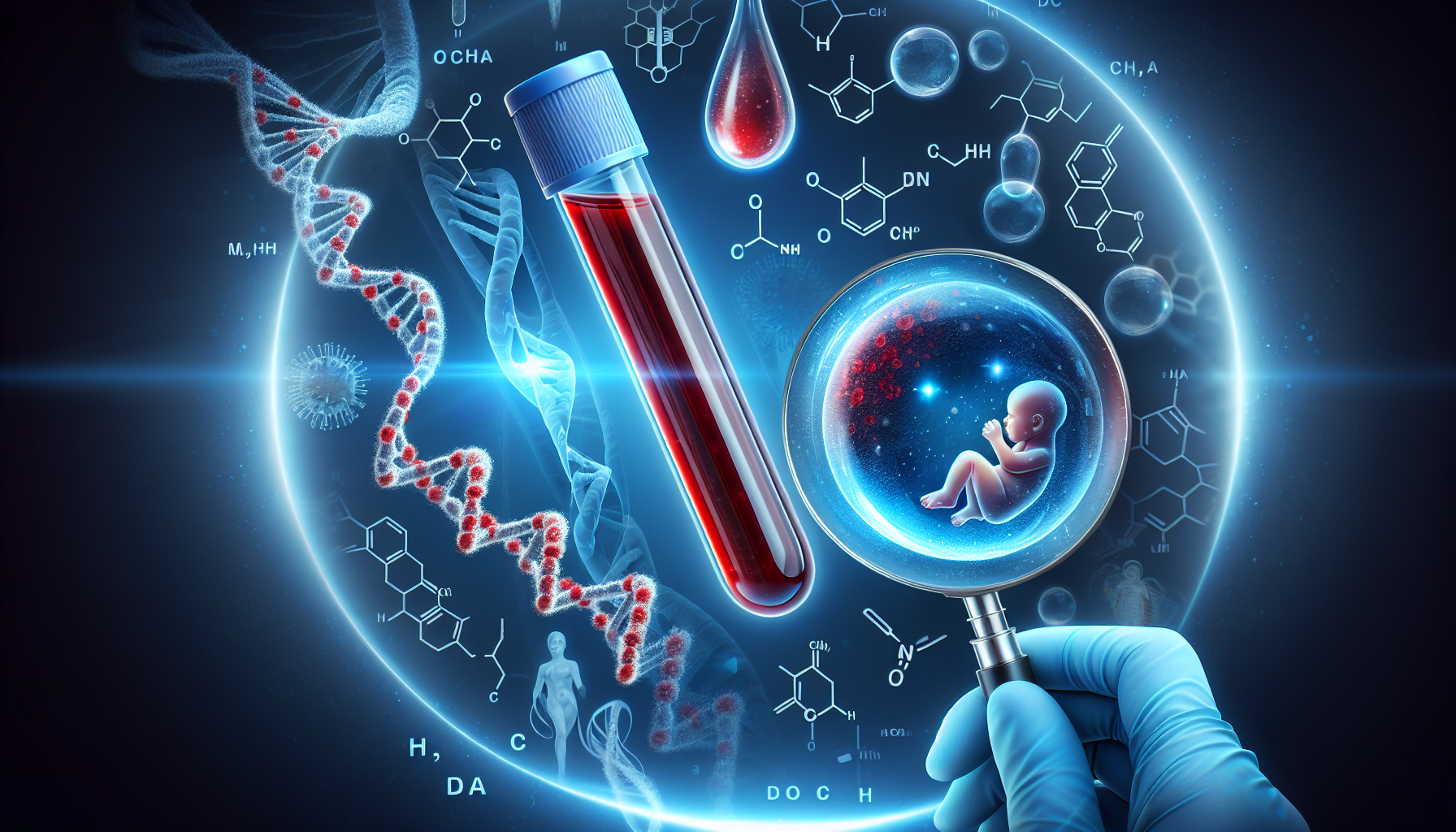New Blood Test Provides High-Resolution Detection of Fetal Genetic Anomalies
Key Takeaways
- A new blood test by Menarini Silicon Biosystems can detect fetal genetic anomalies with high precision.
- The non-invasive test offers a safer alternative to traditional diagnostic methods.
- This breakthrough could lead to significant advancements in prenatal screening protocols.
Did You Know?
Advanced Blood Test Reveals Precise Genetic Anomalies
A groundbreaking study presented at the 2024 World FMF (Fetal Medicine Foundation) conference revealed that a new prenatal blood test by Menarini Silicon Biosystems can accurately detect fetal genetic anomalies. This non-invasive test identifies problematic genetic variations using a simple maternal blood sample, potentially replacing more invasive diagnostic procedures.
The study, involving over 1,000 women, indicates that this test can detect both common trisomies and smaller genetic deletions or duplications known as pathogenic copy number variations (pCNVs). These findings are significant as they could transform prenatal screening, offering a safer alternative to traditional invasive methods.
High Precision in Early Detection
The research showcased that the new test could identify genetic anomalies with high precision, even at an early gestational age. This level of detail is previously unseen in non-invasive prenatal testing (NIPT), which typically relies on cell-free DNA analysis and may miss smaller or less common anomalies.
Dr. Jon Hyett, who leads the Department of Maternal and Fetal Medicine at Liverpool Hospital in Sydney, emphasized the potential of this test to provide clinically relevant information early in pregnancy. He noted, “These results are promising as they offer the potential for unprecedented resolution and accuracy in detecting fetal genetic anomalies.”
Comparison with Existing Methods
The new test from Menarini Silicon Biosystems was compared to traditional methods like chromosomal microarray analysis (CMA) and karyotyping from chorionic villus sampling (CVS) or amniocentesis. The results showed a high degree of concordance, validating the test's effectiveness in identifying genetic risks without the need for invasive procedures.
Dr. Thomas Musci, the Medical Director at Menarini Silicon Biosystems, highlighted the breakthrough nature of this technology. “Isolating fetal cells from maternal blood has been a challenging goal. Our automated system proves that it is feasible and could greatly enhance prenatal care by providing detailed fetal genetic profiles,” he explained.
Implications for Prenatal Care
Menarini Silicon Biosystems continues to push the boundaries of prenatal care with its advancements in single-cell analysis and sequencing technologies. The potential application of this test could lead to better-informed decisions for expectant mothers and their healthcare providers.
Fabio Piazzalunga, president of Menarini Silicon Biosystems, expressed optimism about the future impact of this technology. He stated, “Our ongoing commitment to reproductive health shows promise in unveiling critical fetal information with high sensitivity and specificity. This could profoundly affect women's health care.”
Looking Ahead
The introduction of this advanced NIPT could lead to a new standard in prenatal screening. By offering high-resolution genetic insights non-invasively, this test could reduce the risks associated with traditional diagnostic procedures.
While further research and validation are necessary, the results thus far are promising. Menarini Silicon Biosystems is at the forefront, aiming to integrate this technology into regular prenatal care protocols, ensuring safer and more detailed fetal genetic screening.
References
- Menarini Silicon Biosystemshttps://menarini-silicon-biosystems.com
- Fetal Medicine Foundationhttps://fetalmedicine.org
- World FMF Conference 2024https://worldfmf.org/conference-2024
- Liverpool Hospital Sydneyhttps://www.swslhd.health.nsw.gov.au/liverpool/





